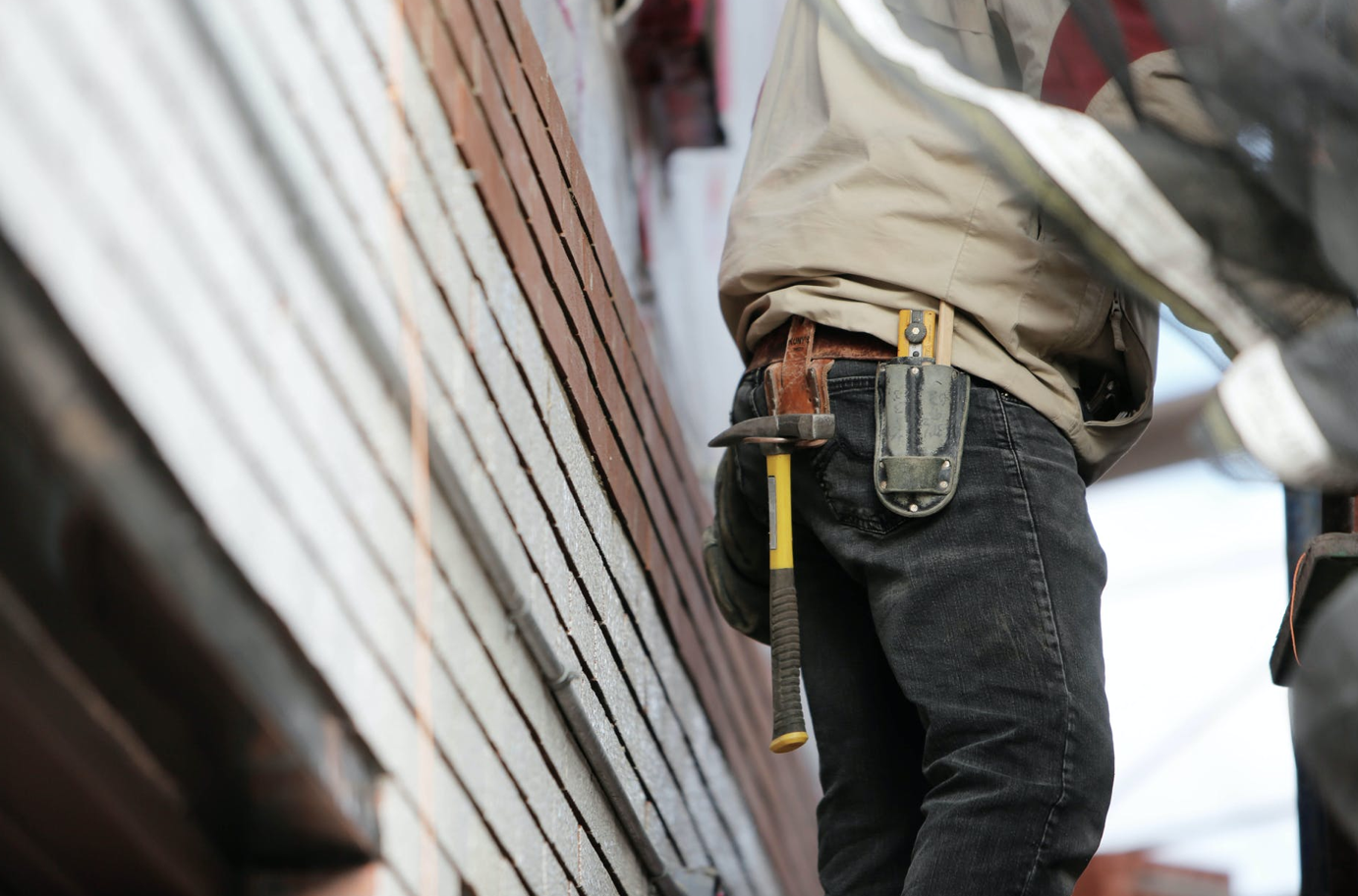The surety company will pull your credit and may even consider your financial assets to determine a premium rate.
It might be only a $250 fine.
But it could be a $1,000 first offense fine and 30 days in jail.
It could even be a fine up to $5,000, a misdemeanor charge with up to 6 months in jail.
These are the penalties for an unlicensed contractor in South Carolina, Texas, and California respectively.
Nearly all states require a contractor to be licensed to complete residential and commercial projects. Being licensed protects:
– All parties involved.
– Prevents fraud.
– Ensures a level of professionalism and care.
– Protects the industry as a whole with a set of rules to follow.
In this article you’ll learn:
– What a contractors license bond is.
– How this bond fits into your compliance.
– What should you do if a claim is made against your bond.
What is a Contractor’s Surety Bond?
A surety bond is a financial product you as the contractor must purchase as part of the licensing process.
There are three parties in the surety bond relationship.
– Principal
– Obligee
– Surety
Let’s go through this process so you understand the different surety bond parties and how this bond fits into every job you will take throughout your career.
Bonding Requirements
Bond amounts are different across states. Yet, it won’t be a mystery to you. The contractors licensing board or entity will tell you the exact bond amount you need to obtain your license.
For example:
– South Carolina has a bond costing $15,000 for residential builders.
– California has a bond for $25,000.
– Colorado has a bond for $50,000.
Some states have bond amounts based on project level. Every state is different.
How Much Does a Bond Cost?
The amounts listed above are the bond amounts. This is not what you will pay to obtain your bond.
Like insurance, what you pay is a small fraction of the “coverage” or in this case amount. The surety company will pull your credit and may even consider your financial assets to determine a premium rate.
This rate can fall between 1% to 15%. It’s unlikely to be more.
If we take the bond amounts above and a 3.5% rate, your cost will be:
– South Carolina bond: $15,000 * 3.5% = $525
– California bond: $25,000 * 3.5% = $875
– Colorado bond: $50,000 * 3.5% = $1,750
In this case, this is the yearly cost. Below you will learn about bond renewal.
Again, your surety broker will help you find the best rate so you pay the least amount for your bond.
Contractor License Bonds Renewal
Contractor’s bonds do renew.
Most states offer continuous bonds which will automatically renew. And depending on the surety company, you can purchase a one, two, even three year bond.
Your surety broker will help align your states requirements with the options the surety company presents.
Renewals are not a pressing issue unless the state changes the bonding amounts. However, make sure you pay your renewal on time or you’ll risk the surety company initiating cancellation. This can further trigger license suspension, even cancellation.
The Promise You’re Making
By purchasing your bond, you’re making the promise to the state and license board to:
– Follow the rules of your license.
– Act in good faith towards the customers you work for.
Remember, a surety bond has three parties:
– The principal: You
– The Obligee: The state (and license board)
– The Surety: The company issuing the surety bond.
Now you should understand what a license (surety) bond is.
How Does a Bond Impact Your Career?

As a licensed and bonded contractor, you’re able to legally take on and complete jobs.
Here are three examples and common complaints made against contractors.
1. Project Misquote
If a contract is signed for a quoted amount and the contractor later, once work has begun, raises the price on the homeowner.
2. Inferior Craftsmanship
The contractor doesn’t follow code. And the overall work on the job is subpar compared to what was promised in the contract.
3. Incomplete Work
The contractor does not finish the job as outlined in the contract.
This relationship goes both ways. Not all complaints are legitimate.
What Happens if a Claim Is Made Against Your Bond?
If a customer makes a claim against your bond, unless they’re unscrupulous, they will have made their complaint known to you.
Work With Your Customer
Work with your customer and resolve the complaint.
This is always the best case scenario. In most cases you want to keep third parties out the business relationship.
If you can’t work things out and the customer issues a claim, it will be for a specific amount in damages. It’s unlikely the claim amount will be for the full amount of the bond.
Claim Investigation
The surety company is not excited to pay out a claim. They will have an investigator make sure the claim is legitimate. This is why it’s good to work with an A rated surety company.
If the Claim is Legitimate
If the claim is legitimate, the surety company is guaranteed to pay the claim to the customer.
Keep in mind, not all claims are legitimate. Customers can make false or inappropriate claims.
This is important… you do not personally pay the customer. The surety company pays the claim amount to the customer.
You are now on the hook to pay back the surety company the claim amount and any fees associated with the investigation process.
Certain claims can mean having your contractor’s license revoked. It can make getting bonded in the future harder and more expensive because your rate will increase.
Remember, it’s always best to solve any complaints directly with your customer. If a customer is unhappy, try not to let third parties get involved.
A Contractors License Bond as a Promise
Getting bonded is a promise you make to fulfill your duties as a licensed contractor.
It’s also a marketing asset because people want to work with bonded contractors. People want to know they are working with a professional who takes their company seriously.
Now you understand what a contractor bond is, why you’re required to purchase one, and how to handle a complaint and potential claim on your bond.


Join the conversation!